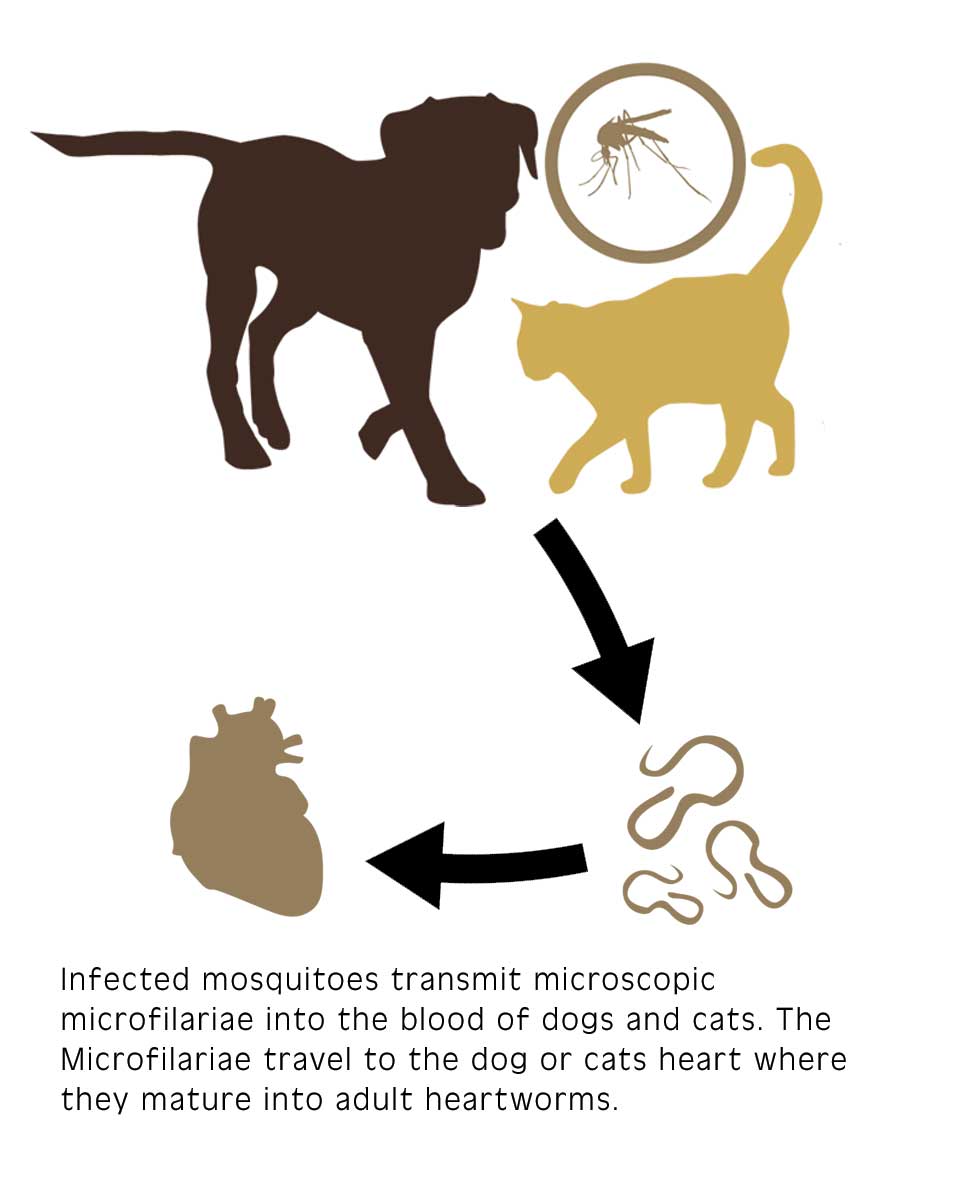
Dogs contract heartworm disease from mosquitos and should be tested annually for heartworms by a veterinarian. If your dog tests negative your vet will prescribe a monthly heartworm preventative.
Wetter Weather Can Bring Disease
Many have been seeing the terrific flooding of the Midwestern states on T.V.
Do you know what comes with all of that water? Mosquitoes.
Mosquitos thrive in wet, humid weather because water is a favorite place to lay their eggs.
And with the warm, wet weather we’ve had here, we should prepare for the armies of mosquitoes, descending this summer.
“When the mosquitoes are mature enough to feed, that is one of the first things that they need to do,” says Chris LaBrie, DVM, of the Kothmann Pet Hospital. And guess who they feed on?
Your two-footed types, and us four-footed humans. It doesn’t matter! They just want to suck our blood!
And when they do suck our dog or cats blood, mosquitoes may inject a parasite into our pets.
“Parasitic larvae mature a couple of life stages inside of the mosquito, then migrate down to the mouth part. There, they are injected through the mosquito bite, into the next host, whether it be a dog or a cat,” says Dr. LaBrie.
“These are almost always mosquito-bite allergies. You can get a big hypersensitivity reaction to mosquito allergies in cats.
Cats are incidental hosts. But the definitive host for heartworm is a dog.”
Once the mosquito has given the pet the parasite, these larvae grow into wormhood, starting off in an animal’s pulmonary vessels, migrating to the chambers of the heart, where they really begin their destruction. Dr. LaBrie says mosquitos are the only insect that transmits heartworms.
And if a dog has heartworms, he can give it to a mosquito, which then bites another dog, spreading the disease.
“It takes about six months for a heartworm test to become positive. So, I test dogs yearly. But you won’t see anything in the stool.”
Fortunately, there is medication in the form of a monthly protective pill.
“The appropriate dose, every month, will prevent heartworms,” the doctor says.
And all dogs should be dosed, with this possibility of contagion.
Early signs of heartworm infection are coughing, lethargy, not wanting to run around, and shortness of breath.
If a dog does develop heartworms, with early detection, a round of injections can cure it. But left untreated, it is fatal.
HeartwormSociety.org warns that as we experience wetter, warmer weather, we may see a rise in insecticide-resistant mosquitoes. So, this menace could get worse.
If you want to avoid heartworm disease, move north. LaBrie says its extreme cold kills these disease-carrying insects.
In semi-tropical climates, like San Antonio, we have to be vigilant.
For more information, visit the College of Veterinary Medicine & Biomedical Sciences, at the Texas A&M University website. vetmed.tamu.edu/news/pet-talk/avoiding-heartworms-other-mosquito-borne-diseases/
Until next month!
Woof, woof!
Roxie








